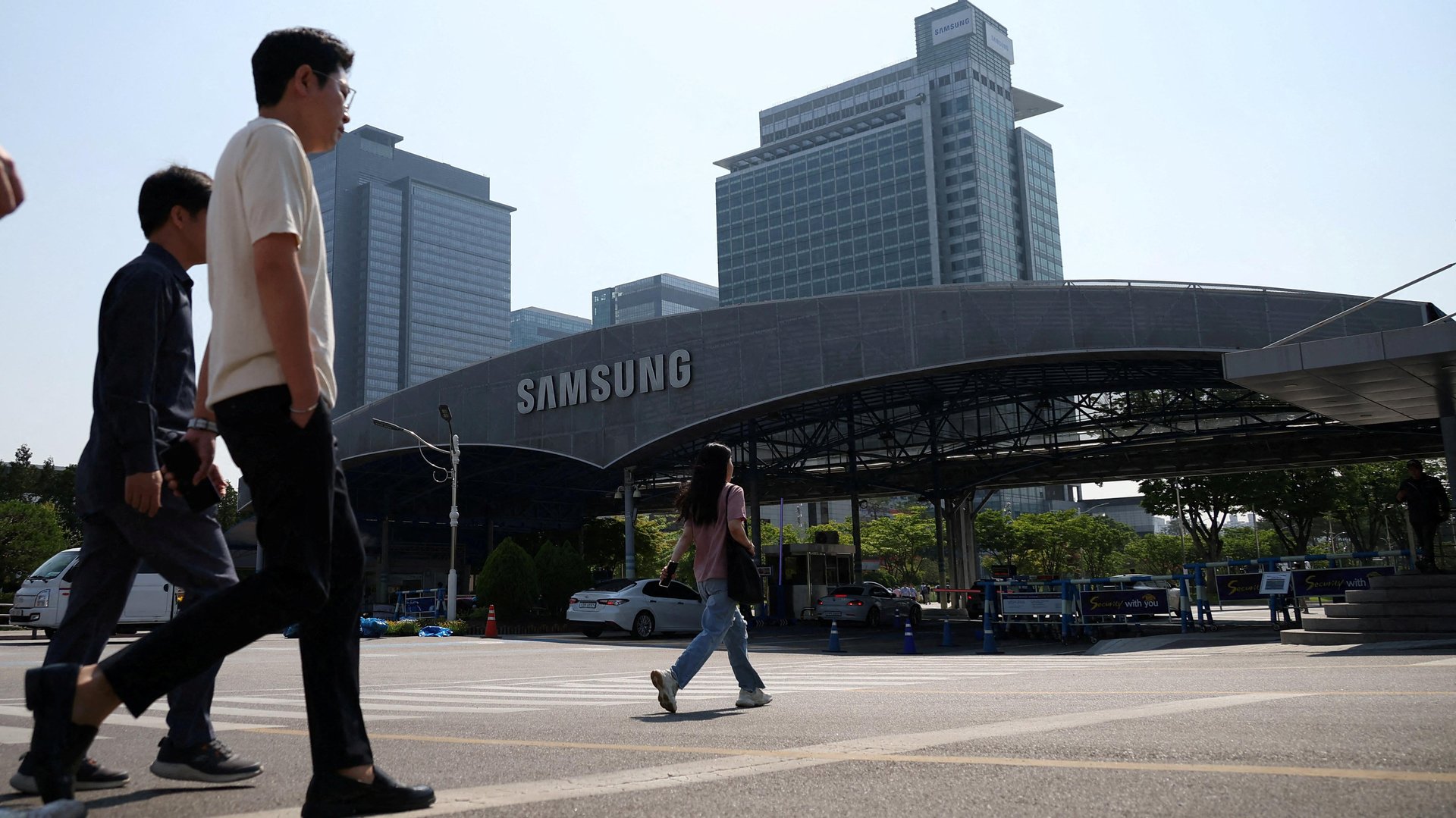South Korea's largest company is letting workers take one Friday off each month
The tech giant and its labor union agreed to extra day of leave in April

Samsung is proposing a four-day work week, once a month.
Suggested Reading
The world’s biggest memory chipmaker will let non-factory, full-time staff in South Korea take one Friday off each month starting next week—specifically the Friday the week of pay day, which typically falls on the 21st of every month. (In case that the 21st falls on Saturday or Sunday, employees can opt to take off the Friday that immediately precedes the weekend.)
Related Content
The extra leave is a follow-up to an agreement inked between the tech giant and its labor union in April. The management reportedly suggested the monthly day off first, and the labor union accepted the deal, daily newspaper Korea Herald reported.
Samsung has slowly been loosening up
In recent years, Samsung has made many moves to revamp its military-style corporate structure into a more flexible, startup-y environment. Key changes have included:
⏳ Scrapping of minimum hours to be physically spent in an office
👔 Loosening dress code policy for high-ranking employees, allowing them to ditch suits and ties on Fridays
🤰 Expanding shortened work hours for all pregnant employees, with more flexibility than dictated by labor laws. The company also has new “Reboarding Program” to help working parents transition back to work.
Work-life balance in South Korea, by the digits
120,000: Samsung employees in South Korea
160 to 168: Hours that have to be clocked in a month to become eligible for Samsung’s new policy.
40%: Share of Samsung’s workforce globally that belong to the millenial and Gen Z age bracket—basically under 30, according to a 2022 company report. Younger workers tend to value work-life balance more than their older counterparts
1,910: Annual hours worked by a South Korean worker on average in 2021, ranking them among the world’s most overworked. The average OECD member clocked almost 200 hours less than that.
69: The maximum number of hours the South Korean government has proposed capping the work week at, up from the current 52, to allow workers to accrue more overtime and thus take more leave later. But it’s not so straightforward. Men will work long hours and be exempt from care responsibilities while the care work burden on women will increase, the Korean Women’s Associations United said. The Korean Confederation of Trade Union said the suggestion showed “no regard for workers’ health and rest” since it’d make it legal to work from, say, 9am to midnight for five consecutive days.
Companies of interest: Other South Korean firms offering flexible work
Samsung isn’t the first company to consider an occasionally shorter work week. Rival chip maker SK Hynix recently began offering employees a Friday off once a month, as long as they work more than 40 hours a week on average.
Internet giant Kakao used to give employees two Fridays off in the days of remote work, which it trimmed to one Friday off as workers came back to office. Its subsidiary, Kakao Games, still gives two Fridays off each month.
CJ ENM, one of South Korea’s largest content companies, gives workers every alternate Friday off. The increased workplace flexibility is a bid to retain talent. The firm wants to “create a new Friday culture that encourages employees to catch up trends and cultivate insight,” a spokesperson told Bloomberg.
Fun fact: Four-day work week and childcare
Men do a lot more childcare during a four-day workweek, the world’s biggest trial of the schedule in the UK revealed.